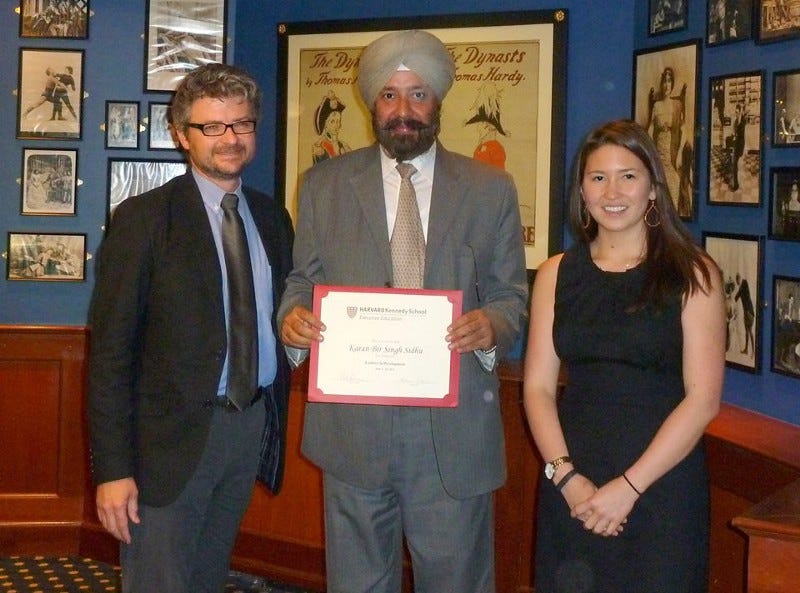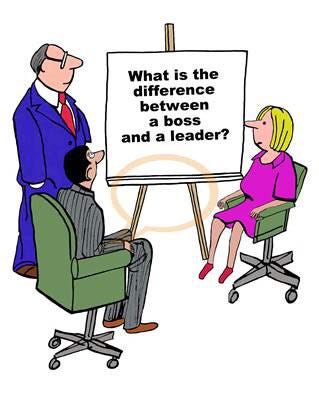"7 Habits of Highly Ineffective Leaders"
निगह बुलंद सुख़न दिल-नवाज़ जाँ पुर-सोज़; यही है रख़्त-ए-सफ़र मीर-ए-कारवाँ के लिए-- Allama Iqbal
In this piece, we'll discuss the “7 Habits of Highly Ineffective Leaders”. You may recall that in 1989, Stephen Covey published a book titled “7 Habits of Highly Effective People,” which became an international bestseller.
Stephen Covey Matrix Precis
Covey outlined a set of 7 distinct qualities, structured as 3+3+1. The first three focused on personal responsibility:
Being proactive, seizing the initiative.
Beginning with the end in mind, keeping the ultimate objective front and center.
Prioritizing tasks, putting "first things first."
The subsequent trio was grouped under "interdependence": 4. Seeking "win-win" scenarios.
Displaying empathy, striving to both understand and be understood.
Harnessing synergies, combining forces to achieve more.
The final trait, "sharpening the saw", emphasized the importance of continuous self-improvement and staying abreast of the latest in one's domain.
Covey's book deeply influenced management thinking for decades, inspiring countless leaders to cultivate these habits. However, there's a void in literature addressing the habits leaders should avoid. Notably, these undesirable habits aren't merely the inverse of Covey's principles. If that were the case, identifying them would merely involve flipping Covey's list. Instead, the implication here is that ineffective leaders consistently neglect Covey's guidelines, leading to their failure in leadership roles.
New Paradigm—Habits to avoid
However, we have attempted to view the subject from a different perspective and come with a new paradigm, highlighting certain habits that good leaders must avoid. To be fair, people with these habits may still be good people with great qualities of the head and heart. They may be an excellent as a member of the team or great in the role of a second-in-command but they nevertheless do not succeed when put in a leadership position.
So, what are those seven undesirable habits which make reasonably good people substantially ineffective as leaders? Not only do these people become miserable themselves but they also tend to demoralize the other members of their team. Of course, the results for the organization as the whole are well nigh disastrous.
1. Reluctance to Delegate:
A defining trait of these leaders is their refusal to delegate, preferring to shoulder every task. This "Do It Yourself" mindset is deeply ingrained in them. According to classical leadership theory, a leader should only personally address matters that are both urgent and important. For everything else, efficient delegation, coupled with granting the necessary authority, is vital. In failing to delegate, these leaders overlook an essential truth: it's the collective team that achieves the end goal, not just one individual.
2. Mistrust of Subordinates:
While these leaders often hold themselves in high regard when it comes to personal integrity, they display an unsettling distrust towards their team members. This skepticism isn't just limited to concerns over financial integrity but also extends to doubts about loyalty and dedication to the organization. Such leaders frequently view their junior members as potential slackers, constantly attempting to avoid work. This pervasive atmosphere of mistrust invariably dampens the overall morale of the organization.

3. Constantly Revisiting Decisions:
Leaders can employ various decision-making styles. Some may be consultative, gathering opinions from the whole group or consulting key members individually. Others might lean towards making decisions independently. Regardless of the style, it's crucial that leaders weigh the advantages and disadvantages, taking into account potential consequences. However, some leaders habitually second-guess decisions, even those reached after extensive deliberation and consultation.
It's important to note that if a new unforeseen event occurs or previously unavailable data emerges, revisiting a decision is warranted. Yet, without these new factors, repeatedly re-opening or reinterpreting decisions leads to an atmosphere of uncertainty. This lack of decisiveness can cast a cloud of doubt over the entire organization, hampering its effectiveness.
4. Lacking Confidence in Their Abilities:
While they may possess remarkable skills and qualities, these individuals often don't have confidence in their own capabilities. This lack of confidence is not just about personal self-doubt; it has repercussions throughout the organization. A leader's hesitance and self-doubt can cascade down, causing a ripple effect that undermines the confidence of the entire team. It's not merely the presence of skills or knowledge that makes a leader effective, but the assurance in wielding them. An effective leader needs to not only be proficient but also convey a steadfast belief in their own competencies to inspire their team.
5. Mismanaging Focus:
A pivotal aspect of leadership is maintaining the right balance of focus. At one end of the spectrum, we have leaders who struggle with a scattered mindset. Despite having organizational priorities, these leaders might find themselves distracted by a plethora of tasks, resulting in missed opportunities and overlooked priorities.
On the other extreme, there are those who hone in too intently on a singular area or task. This hyper-focus can blind them to other ongoing processes within the organization or external factors in the broader environment. By fixating solely on one aspect, they risk neglecting other crucial areas, which could be detrimental to the organization's growth and adaptability.
In essence, an effective leader recognizes the need for a balanced focus – broad enough to see the whole picture but refined enough to attend to immediate priorities.
6. The Perpetual Victim Mentality:
Another detrimental trait in leadership is the perpetual victim mentality. Leaders with this mindset believe that external forces are incessantly working against them. Whether it's feeling unsupported by their Board of Directors, perceiving betrayal from their Vice-Chairs or second-in-command, blaming unpredictable market downturns, or even attributing setbacks to acts of God, they constantly view themselves at the mercy of circumstances.
Such a mindset prevents leaders from taking accountability for their actions and decisions. Instead of seeking solutions or making proactive changes, they become entrapped in a cycle of blame and inaction. Leadership requires resilience, adaptability, and the ability to navigate challenges without succumbing to a defeatist attitude. A leader constantly playing the victim can never inspire trust or confidence in their team, inhibiting organizational progress and innovation.
7. Dwelling on Past Failures Without Celebrating Small Wins:
A significant trait that diminishes leadership effectiveness is the tendency to excessively ruminate over past failures. It's crucial to understand that in the journey of innovation and striving for success, failures are inevitable. They are merely stepping stones that provide valuable lessons. Yet, certain leaders become engrossed in past failures, over-analyzing every detail and steeping in pessimism. This prolonged reflection not only hinders their personal growth but also spreads a gloomy and demotivating atmosphere throughout the organization.
However, effective leadership is not just about accepting failures and moving forward; it's also about recognizing and celebrating small victories. Grand successes may be rare, perhaps occurring once or twice in a lifetime. But small achievements, whether it's meeting modest deadlines or reaching minor milestones, deserve acknowledgment. These celebrations, even if they're modest, act as morale boosters, motivating the team and fostering a positive organizational culture. An adept leader knows that celebrating these victories uplifts the team, driving them closer to larger accomplishments.

Emulating Successful Leaders
Iconic leaders like Steve Jobs and Elon Musk have displayed an uncanny ability to sidestep many of these pitfalls. Jobs, for instance, was known for his unwavering focus on Apple's mission, ensuring he didn't get caught in the trap of over-diversification. Musk, on the other hand, exemplifies the importance of resilience and not brooding over failures, having faced numerous setbacks in the early days of Tesla and SpaceX yet pushing forward with a vision of the future.
Conclusion and Take-away
Leadership is as much about avoiding pitfalls as it is about adopting effective habits. While some habits discussed may overlap with Covey's principles, they offer a renewed lens on leadership in today's world. For further reading and insights on leadership, I'd recommend two of my articles on Substack: "Leadership Lessons from Harvard"1 and "Leader-manager Continuum"2. As leaders, it's essential to introspect and continuously refine our approach. Avoiding these ineffective habits and fostering an environment of trust, confidence, and growth is the path to effective leadership3.
"Leadership Lessons from Harvard": Beyond Titles, Towards Transformation and Daring to Inspire
The Intricacies of Leadership: From Global Politics to Business Boardrooms In today's world, leadership is an essential flavour across various walks of life. Whether it's international relations, national politics, multinational corporations, or spiritual realms, the demand for strong and effective leadership is palpable. Leadership goes beyond mere titl…
"Leader-Manager Continuum": A 21-point Analytical Framework for Unravelling the Distinctive Attributes
Of Leaders and Managers Deciphering the nuanced differences between a leader and a manager is an intriguing exploration, often subject to diverse interpretations. However, it becomes particularly insightful when one considers the sterling examples of leadership and management demonstrated by iconic figures like Abraham Lincoln and Mahatma Gandhi.
निगह बुलंद सुख़न दिल-नवाज़ जाँ पुर-सोज़ यही है रख़्त-ए-सफ़र मीर-ए-कारवाँ के लिए
"Gaze fixed at the lofty ideals, eloquent in speech, heart filled with fervor: These are essentials for a journey, for the leader of the caravan." Allama Iqbal











Had to chec the meaning of Iqbal shayari used here sir.Then I was checking "dayare ishq mein apna maqam paida kar "-very nice poetry on Khudi concept b y Iqbal.
Stephen R Covey outstanding and indeed incredible:)